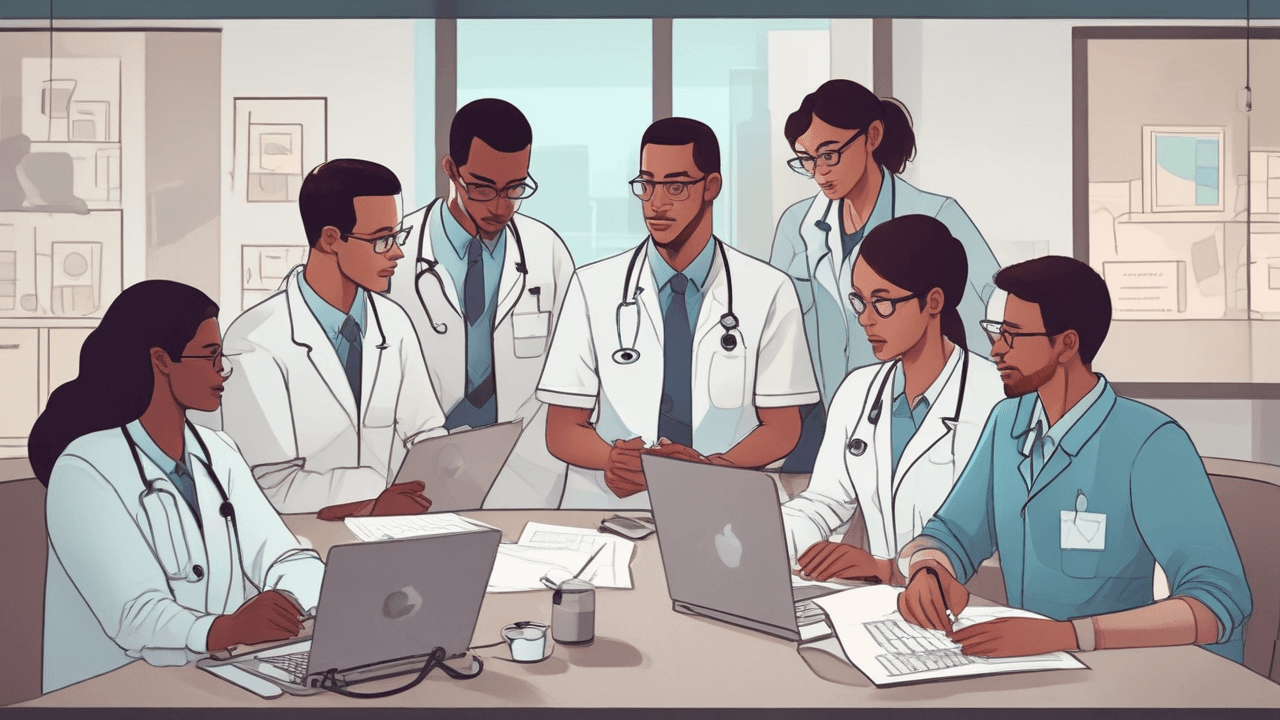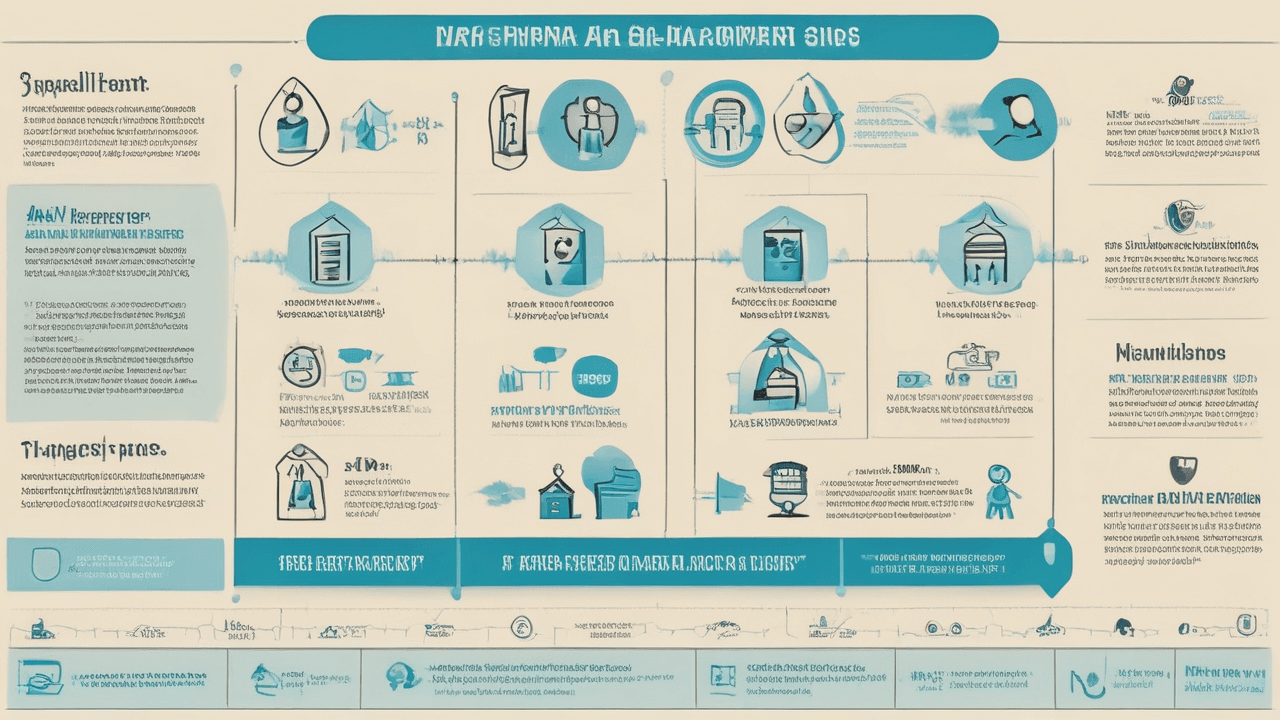Master HIPAA Compliance: Expert Insights


Key highlights
- HIPAA sets rules to protect sensitive patient data.
- It requires security measures for physical, network, and processes.
- Covered entities, such as healthcare providers and health plans, must follow these rules.
- Business associates who handle patient information must also comply with HIPAA.
- The Security Rule protects electronic protected health information (ePHI).
- It includes technical safeguards like access control, encryption, and audits.
Introduction
HIPAA compliance is very important in today's healthcare system. The Health Insurance Portability and Accountability Act, or HIPAA, creates rules to keep sensitive patient health information safe. One key part is the Privacy Rule. It sets rules for how to use and share protected health information (PHI). This helps keep patient data secure.
Understanding HIPAA compliance: an overview

HIPAA compliance means following the rules from the Health Insurance Portability and Accountability Act of 1996. This law is designed to keep protected health information (PHI) safe. PHI includes things like a person's medical records, billing information, and other private details.
HIPAA compliance is not just a legal requirement. It is also an important ethical duty for healthcare providers, health plans, healthcare clearinghouses, and their business partners. By putting strong security measures in place, these organizations protect the confidentiality, integrity, and availability of PHI. This helps build trust between healthcare providers and patients.
The importance of HIPAA in healthcare
HIPAA is very important for today's healthcare. It sets rules for protecting patient information and civil rights. As health records become more digital, the chance of data breaches and privacy problems grows. HIPAA helps protect sensitive patient data. It makes sure healthcare organizations process, keep, and share information safely.
The law gives patients more control over their health information. This includes the right to see their records, ask for changes, and know who has accessed their data. This helps build trust between patients and the healthcare system.
Also, HIPAA holds different groups responsible. It details what covered entities and business associates must do. By setting clear rules for protecting patient information, HIPAA encourages good practices in the industry and helps keep healthcare operations safe.
Key objectives of HIPAA legislation
The Health Insurance Portability and Accountability Act (HIPAA) has an important goal. It aims to protect the privacy and safety of protected health information (PHI), which includes individually identifiable health information along with various data like medical records, billing details, and other sensitive health information. HIPAA requires covered entities and business associates that handle PHI to set up proper measures. These measures help keep this information safe from unauthorized access, use, or sharing.
Another main goal of HIPAA is to make the healthcare system better and more effective. It encourages standard electronic healthcare transactions. This standardization helps make administrative tasks easier, cuts costs, and improves data sharing among healthcare providers, health plans, and other people involved in caring for patients.
HIPAA also looks at the issue of health insurance portability. It helps ensure that people do not lose their health insurance when they change jobs. This way, they can keep getting key healthcare services during job transitions.
Breaking down the HIPAA rules

HIPAA is not just one rule; it is a broad set of guidelines with several important regulations. The main rules are the Privacy Rule, the Security Rule, and the Breach Notification Rule. Each rule focuses on different parts of protecting your health information. Together, they create a strong system to keep sensitive patient data safe.
The Privacy Rule sets standards for how to use and share protected health information. It helps patients have more control over their health data. The Security Rule is about keeping electronic protected health information (ePHI) safe. It requires technical safeguards such as access control, encryption, and audits. The HIPAA Breach Notification Rule explains how to report breaches of protected health information. It makes sure that there is transparency and quick action when a security problem happens.
The privacy rule and its impact on patient rights
The HIPAA Privacy Rule is very important for patient rights in the United States. This rule creates rules to protect the privacy of individually identifiable health information (PHI). It gives patients more control over their medical records and how this information is used and shared. Under the Privacy Rule, patients have the right to see their health information, ask for corrections if there are mistakes, and get a list of those who accessed their information.
The Privacy Rule highlights the need for patient consent. Healthcare providers and other covered entities must get permission before using or sharing PHI for reasons other than treatment, payment, or healthcare operations. This way, patients know how their information is used and can make choices about their privacy.
Additionally, the Privacy Rule explains certain situations where PHI can be shared without patient permission. This can happen in public health emergencies or when abuse or neglect is suspected. These exceptions help to protect patient privacy while making sure that individuals and the community are safe.
The security rule: Safeguarding electronic protected health information (ePHI)
The HIPAA Security Rule under HIPAA is important for protecting Electronic Protected Health Information (ePHI). It sets clear security standards to keep this sensitive data safe. Covered entities and business associates in the United States must follow these rules. This is to keep ePHI confidential, intact, and accessible when needed. The Security Rule includes technical safeguards, physical safeguards, and administrative safeguards. These prevent unauthorized access or sharing of information. For healthcare organizations, following these rules is key to protecting patient information and stopping any possible breaches.
The enforcement rule: penalties and compliance
The HIPAA Enforcement Rule is important because it makes sure that covered entities and business associates recognize how serious it is to follow HIPAA rules. If they do not follow these rules, there can be big consequences. The rule has a set of penalties that can range from $100 to $50,000 for each violation. The penalty amount depends on how bad the breach is, who is at fault, and whether the violation was fixed quickly.
This rule highlights the need to take HIPAA compliance seriously and not leave it for later. Covered entities and business associates should put in strong security measures, train their staff well, and regularly check for any risks to find and fix weaknesses in their systems.
Additionally, the Enforcement Rule gives the Office for Civil Rights (OCR) the power to look into complaints, carry out compliance checks, and set penalties for HIPAA breaches. This keeps healthcare organizations responsible for safeguarding protected health information (PHI).
Who needs to be HIPAA compliant?

HIPAA compliance is not just for healthcare providers. It also includes many other groups in the healthcare system. Covered entities consist of health plans, healthcare clearinghouses, and any people or organizations that send health information electronically. These groups must follow HIPAA regulations.
Business associates, who manage protected health information for covered entities, must also be HIPAA compliant. This group includes service providers like billing companies, IT contractors, and cloud storage suppliers. The broad reach of HIPAA compliance shows how important it is to protect sensitive patient data in the healthcare field.
Identifying covered entities and business associates
In the world of HIPAA rules, it's important to know the difference between covered entities and business associates. Covered entities are the main players in healthcare. They directly provide or manage healthcare services. This group includes doctors, hospitals, clinics, health insurance companies, and government health programs. It also includes clearinghouses that process health information.
Business associates, on the other hand, are outside service providers. They handle protected health information (PHI) for covered entities. Examples are billing companies, IT contractors, and cloud storage providers. These organizations access, use, or share PHI while doing their work.
HIPAA regulations require both covered entities and business associates to put in place proper safeguards to protect PHI. This shared duty helps keep sensitive patient data safe from unauthorized access, use, or disclosure.
HIPAA compliance for healthcare providers and insurers
Healthcare providers, like hospitals, clinics, and doctors, have a vital role in creating and following a strong HIPAA compliance program that includes laboratory systems. They need to pick a privacy officer, train their staff well, do regular risk checks, and set clear rules for handling protected health information (PHI). They also have to make sure that their partners follow HIPAA rules, protecting PHI at every stage.
Health insurance providers also manage important health information and need to meet similar compliance requirements. They must put in place good administrative, physical, and technical safeguards to stop unauthorized access, use, or sharing of PHI. This includes using access controls, encryption, and audit checks to keep PHI safe during both storage and transfer.
Additionally, health insurance providers need to have plans for breach notifications, handling incidents, and recovering data. They must also follow rules about how to use and share PHI, making sure patient rights are followed and that PHI is only used or shared when allowed.
The path to achieving HIPAA compliance

Achieving HIPAA compliance is not just a one-time task. It is a continuous journey that requires a strong plan. This plan includes knowing the regulations well, setting up strong protections, and keeping an eye on improvements.
The journey starts by doing a risk analysis. This helps find weaknesses in how an organization manages PHI. After figuring out these risks, organizations need to set up the right administrative, physical, and technical safeguards. These will help reduce risks and protect the confidentiality, integrity, and availability of PHI. It is also very important to provide regular training for employees. This way, everyone knows their role in keeping sensitive patient data safe.
Conducting a risk analysis and management process
Conducting a good risk analysis is very important for organizations that must follow HIPAA rules. This process means finding possible threats and weak spots that could hurt protected health information (PHI). It also involves checking how likely these events are to happen and how serious their impact could be. Based on this, organizations need to create a plan to handle and reduce these risks.
The risk analysis should look at all parts of how an organization deals with PHI. This includes checking administrative, physical, and technical safeguards. For example, it involves evaluating the safety of electronic health records (EHRs), reviewing rules for handling paper records, and checking how secure the places are where PHI is stored. It's also a task that should be done regularly. This way, organizations can keep up with new technologies, emerging threats, and changes in their operations.
By recognizing and understanding the specific risks they face, healthcare providers and other covered entities can use their resources better. They can put in the right security measures to help lower the chances of facing expensive and harmful data breaches.
Implementing necessary physical, administrative, and technical safeguards
Implementing strong safety measures is very important to keep protected health information (PHI) safe. HIPAA requires three main types of safeguards: physical, technical, and administrative. Each type is vital to creating good security.
Physical safeguards protect the area where PHI is kept and accessed. This means having access controls to only let authorized people in, like key card systems or security guards. Physical safeguards also include securing computers and devices that use PHI, properly disposing of electronic materials, and keeping a clean workspace to avoid accidental sharing of PHI.
Technical safeguards use technology to protect electronic protected health information (ePHI). They involve access control methods like unique user IDs, strong passwords, and two-factor authentication. It's important to use encryption to keep ePHI safe, whether it is stored or being sent. Audit controls help organizations track system activity, find unauthorized access attempts, and keep records for compliance.
HIPAA compliance and digital health records
The rise in using digital health records (EHRs) brings many benefits. It can make things run smoother, improve how care is coordinated, and cut costs. But it also comes with particular challenges for HIPAA compliance. EHRs hold a lot of sensitive patient information, which makes them appealing targets for cybercriminals.
To reduce these risks, healthcare providers need to use strong security measures to safeguard ePHI. This includes setting access controls, using encryption, and keeping audit trails. These steps guarantee that only those allowed can see sensitive patient data. Any attempts at unauthorized access must be recorded and checked. Regular risk assessments are also important. They help spot weaknesses and set up the right protections to keep ePHI safe from new threats.
Challenges and solutions for ePHI security
Protecting electronic protected health information, or ePHI, is a big challenge in today’s digital healthcare world. Healthcare organizations face many risks like data breaches, unauthorized access, and accidental sharing of data. They also need to follow HIPAA regulations.
A key issue is the rise of mobile devices and cloud computing. These increase the areas that can be attacked and make it harder to control access. Organizations need to use tools like mobile device management (MDM) and secure cloud storage to reduce these risks.
Another challenge is that cyber threats keep changing. Hackers are always finding new ways to attack, so organizations must be ready for threats like ransomware and phishing. Strong cybersecurity, training for employees, and clear plans for emergencies are essential to tackle these risks.
To protect ePHI, a flexible approach is needed. This should include strong technical safeguards such as encryption and access controls. It should also involve administrative actions like training workers and assessing risks, along with physical safeguards to protect data centers and devices.
The role of encryption in protecting health information
Encryption is the process that changes data into a format that is hard to read. This makes it tough for unauthorized people to understand the information. It is very important for protecting data. Even if someone gets access without permission, sensitive information stays hidden.
Encryption is especially important for safeguarding health information. This includes data found in electronic health records (EHRs) and other online healthcare systems. When ePHI is encrypted, it protects the data both while moving between devices and when it is stored. Protecting data in transit ensures security when it is sent, while protecting data at rest secures it on servers, databases, or smartphones.
By making health information unreadable without the right keys to decrypt it, encryption creates a strong defense against unauthorized access, data leaks, and accidental sharing. It is a must-have part of any healthcare data protection plan. It helps keep sensitive patient information private and safe.
Navigating HIPAA compliance amidst COVID-19
The COVID-19 pandemic greatly changed the healthcare field. It pushed hospitals and clinics to quickly adapt and use new ideas. This was especially true for telehealth and remote care services. As healthcare providers made changes, it became very important to keep HIPAA compliance while managing these new situations.
The rise in telehealth services and people working from home also increased risks from cybercriminals. This highlighted the need for strong security measures to protect electronic protected health information (ePHI). Organizations had to change their HIPAA compliance programs to tackle these challenges. They needed to set up security protocols for video calls and give clear guidelines to employees on how to handle protected health information (PHI) while working remotely.
Temporary policy changes and their implications
In response to the unique problems caused by the COVID-19 pandemic, the U.S. Department of Health and Human Services (HHS) made some temporary policy changes about HIPAA enforcement. These changes aimed to help healthcare providers have more options in using telehealth and remote communication tools to offer care during this health crisis.
One key change was that HHS relaxed the rules about using certain audio and video tools for telehealth. This allowed healthcare providers to use popular platforms, like Zoom or Skype, for telehealth visits without facing HIPAA penalties, even if these platforms did not meet all of HIPAA's security rules.
While these temporary changes helped to grow telehealth services, they brought up concerns about protecting patient privacy. Healthcare providers had to find a balance between being flexible in delivering care and ensuring that sensitive health information remained safe.
Best practices for telehealth and remote care services
As healthcare depends more on telehealth and remote care, it's very important to follow best practices for HIPAA compliance. This will help protect patient privacy. A key step is to do a risk analysis. This means checking for any weak points in remote communication tools and setting up protections like encryption, access controls, and audit trails.
Healthcare providers need to teach patients about the risks and benefits of telehealth services. They should explain how health information is kept safe during virtual visits. It's also essential to get informed consent before using telehealth platforms.
It's important to regularly check and update security for telehealth services. This can involve installing software updates, using strong passwords, and turning on multi-factor authentication. Providers should also set clear rules for staff on how to handle telehealth services. They need to stress the need to protect patient privacy and follow HIPAA regulations while working remotely.
Recent updates and future of HIPAA compliance
HIPAA compliance is always changing as healthcare technology and rules develop. A key update is the changes made to the HIPAA Privacy Rule in 2021. These changes aim to improve patient rights and make it easier to coordinate care. To stay informed, organizations should track insights from sources like HIPAA Journal. They show a continued effort to protect health information while also allowing appropriate access to help improve patient care.
Looking to the future, HIPAA compliance will need to adjust to new technologies like artificial intelligence (AI) and machine learning in health care. As these technologies grow, it will be very important to use them responsibly and ethically while still following HIPAA rules.
Understanding the 2021 modifications to the HIPAA privacy rule
In 2021, the U.S. Department of Health and Human Services (HHS) made changes to the HIPAA Privacy Rule. These changes aimed to give patients more control over their health information. They also aimed to help with care coordination and adapt to the changing healthcare world.
The changes included better access to personal health information. Now, people can more easily access their health data on smartphones and other electronic devices. The time required for covered entities to provide copies of health information was also shortened. This helps respond to requests faster.
Additionally, the 2021 changes focused on the use and sharing of protected health information (PHI) for some public health activities. This helps improve coordination and sharing of information during public health emergencies and supports initiatives for better public health. These updates show a strong commitment to protecting health information while also meeting the needs of today’s healthcare system.
Anticipated changes and their potential impact
As healthcare changes, HIPAA compliance must also change to keep up with new trends and challenges. There are expected changes in the healthcare world that could greatly affect how HIPAA compliance works in the future.
The rise of artificial intelligence (AI) and machine learning in healthcare offers both chances and challenges for HIPAA compliance. These technologies can improve patient care and make operations easier. However, they also create worries about the privacy and security of health information. Organizations will need to put protections in place. This will help make sure AI and machine learning systems remain responsible and follow HIPAA’s privacy and security standards.
Another big change is the shift toward value-based care models. These models focus more on the quality and efficiency of care rather than just the number of patients treated. As healthcare providers start sharing patient data more to work together and improve outcomes, it will be very important to follow HIPAA regulations. This highlights the need for secure health information exchange platforms and strong data-sharing agreements between healthcare providers.
Practical tips for maintaining ongoing HIPAA compliance
Staying compliant with HIPAA takes a lot of effort. Organizations need to create a culture of compliance. All employees must understand how important it is to protect health information and be trained on HIPAA regulations. Regular risk assessments are very important. This helps find weaknesses and set up the right safeguards to reduce these risks.
Another key part of maintaining HIPAA compliance is to have clear technical policies and procedures for handling PHI. This means making incident response plans for possible data breaches. It also includes secure ways to dispose of PHI and checking business associate agreements. This ensures that third-party vendors follow HIPAA's requirements. Ongoing checks and audits of HIPAA compliance are vital. This helps find any gaps, follow progress, and make sure the organization is meeting the regulations.
Regular training and awareness programs for employees
Regular training and awareness programs for employees are very important for successful HIPAA compliance. Training helps employees at all levels learn how to handle PHI carefully and follow HIPAA regulations. These programs should explain key points of HIPAA, like what PHI means, patient rights, allowed disclosures, and the organization’s rules for protecting health information.
Awareness programs work alongside formal training. They remind employees about important messages and make sure HIPAA compliance stays in their minds. These programs can include email reminders, newsletters, or posters in shared areas. They provide practical tips and real-life examples to help employees see why HIPAA compliance matters and how to use the knowledge from training in their daily jobs.
When organizations create an environment where employees take part in protecting health information, they lower the risk of HIPAA violations. They also help secure patient data. Staff who are well-trained and informed are key in preventing accidental disclosures, data breaches, and other HIPAA compliance problems.
Conducting periodic security assessments and audits
Conducting regular security assessments and audits is very important for keeping a strong HIPAA compliance program. Security assessments look at how good an organization's security controls, policies, and procedures are. They help make sure these measures effectively reduce risks to the confidentiality, integrity, and availability of protected health information (PHI). By doing these assessments, organizations can find weak spots in their security. This way, they can fix issues before anyone can take advantage of them.
Audits are different. They check whether an organization follows HIPAA regulations. Audits usually involve a detailed look at the organization’s policies, procedures, and documents to confirm they meet HIPAA's rules. This can be done by trained staff within the organization or by outside auditors, giving an unbiased review of how well the organization is following the rules.
These assessments and audits should happen regularly. It is important to keep track of things like changes in regulations, new technologies, or systems, and potential weak points from past assessments.
How Medha Cloud IT services help with HIPAA compliance?

Navigating HIPAA compliance can be tough for healthcare organizations. Medha Cloud IT services offer full solutions designed for the healthcare industry. We help organizations reach and keep HIPAA compliance.
We provide various services. These include secure cloud hosting, data encryption, access control management, and designing and implementing HIPAA-compliant IT infrastructure. Our team works closely with healthcare organizations. We learn about their needs and create tailored solutions. These solutions match their goals and keep patient data secure and private.
The benefits of partnering with Medha Cloud for HIPAA compliance needs
Partnering with Medha Cloud for your HIPAA compliance needs has many benefits. It gives you peace of mind and lets you focus on what really matters: providing great patient care. A major benefit is that you can tap into Medha Cloud's knowledge of HIPAA regulations and best practices.
Our team knows a lot about the details of HIPAA compliance. We can help you put the right measures in place to protect your patients’ sensitive data. Another plus is our full range of HIPAA-compliant IT solutions. We offer secure cloud hosting, data encryption, access control management, and vulnerability assessments. These tools can help you build and keep a strong HIPAA compliance program.
When you work with Medha Cloud, you get to use our experience and knowledge to handle the changing world of HIPAA regulations. We stay up-to-date on the latest changes and best practices. This way, you can focus on what you do best while feeling confident that you can meet your compliance requirements.
Implementing HIPAA-compliant technology solutions for healthcare organizations
Medha Cloud IT services are important for helping healthcare organizations use technology that follows HIPAA rules. We focus on the specific needs of each organization to keep their protected health information (PHI) safe and private. We believe there is no one-size-fits-all solution, so we create customized options.
Our expert team works with healthcare providers to look at their IT systems. We find possible weak points, then we create a detailed plan for using HIPAA-compliant technology. This includes safe private cloud storage for health records, ways to keep PHI secure while being sent or stored, and access control systems to limit who can see sensitive data.
We also help healthcare organizations set up HIPAA-compliant ways to communicate, like secure email and video calls. Our aim is to let healthcare organizations use technology well while keeping the confidentiality, integrity, and availability of their PHI intact.
How Medha Cloud IT services ensure data security and privacy in accordance with HIPAA regulations
Ensuring data security and privacy is very important to Medha Cloud IT services when it comes to HIPAA compliance. We know how sensitive protected health information (PHI) is, so we have strong measures in place to keep this data safe. Our systems use top security methods and technologies. These include firewalls, intrusion detection systems, and multi-factor authentication. This helps protect PHI from unauthorized access and cyber threats.
We focus on data encryption too. This means that PHI is encrypted both when it is sent and when it is stored. Whether the data moves between systems or sits on our secure servers, encryption makes it unreadable to anyone without permission. This way, we protect patient privacy.
We regularly check our security with assessments, vulnerability scans, and penetration tests. These proactive steps help us find and fix potential weak points before someone can take advantage of them. This ensures that the PHI we handle remains secure and confidential.
Implementing secure data storage and transmission systems
Medha Cloud prioritizes the security of PHI during both storage and transmission, employing robust systems and protocols to maintain data integrity and confidentiality. We utilize a multi-layered approach to secure data storage, leveraging encryption, access controls, and regular data backups.
Our data centers are equipped with state-of-the-art security measures, including physical access controls, surveillance systems, and environmental monitoring, ensuring PHI’s physical protection. We understand that securely transmitting PHI is equally crucial. Our systems employ encryption protocols, such as TLS/SSL, to safeguard PHI during transmission between authorized parties.
|
Feature |
Description |
|
Secure Socket Layer (SSL) |
Website traffic encryption |
|
Transport Layer Security (TLS) |
Email and other data encryption |
|
Encrypted File Transfer Protocol (SFTP) |
Secure file transfer between systems |
|
Virtual Private Network (VPN) |
Encrypted connections for remote access. |
Providing ongoing support for maintaining compliance.
HIPAA compliance isn’t just a one-time task. It’s a process that takes time and ongoing effort. You need to keep watching and adapting to the changing rules. Medha Cloud helps clients by providing continuous support to keep them compliant and to tackle new challenges as they come up. Our support team is always ready to help healthcare organizations with any questions about HIPAA compliance.
We help with new HIPAA policies and procedures. We also provide training for staff and assist with regular risk assessments and audits. We keep an eye on changes in HIPAA regulations and industry best practices. We make sure our clients stay informed and their compliance efforts are effective.
Our goal is to be a trusted partner for healthcare organizations. We want to give them the support and guidance they need to manage the complexities of HIPAA compliance and feel at ease.
Conclusion
In conclusion, it is important to keep HIPAA compliance to protect patient privacy and ensure data security in healthcare. Covered entities and business associates need to know the main goals and rules of HIPAA to avoid penalties. Regular training, risk analysis, and putting in needed safeguards are key steps for staying compliant. Working with Medha Cloud for IT services can support HIPAA compliance efforts. This helps keep data security and privacy in line with regulations. By staying updated and following best practices, healthcare organizations can handle HIPAA compliance smoothly.
Frequently asked questions
What Constitutes a Violation of HIPAA?
A HIPAA violation happens when someone breaks the Privacy Rule. This could be through unauthorized access, use, or sharing of sensitive information. This sensitive information is often protected health information (PHI). It occurs without the patient's consent or a valid legal reason.
How often should HIPAA training be conducted?
HIPAA training must be given to all employees of healthcare organizations when they are hired. This training should also happen regularly to meet compliance requirements. How often this training is done can depend on the organization’s risk assessment and state laws. However, it should take place at least once a year.
Can small practices afford to be HIPAA compliant?
Yes, small practices can follow HIPAA rules without breaking the bank. There are some costs to start a compliance program. However, the costs for not following the rules can be much higher. These costs can hurt the practice financially and damage its reputation.
What are the penalties for HIPAA non-compliance?
Penalties for not following HIPAA rules can vary. There are civil money penalties for unintentional mistakes. There can also be criminal charges if there is willful neglect. How serious the penalty is depends on things like how bad the violation is and how guilty the person is.
How does HIPAA compliance differ for covered entities vs. business associates?
Both covered entities and business associates must follow HIPAA. However, their compliance requirements are a bit different. Covered entities are directly responsible for patient information. On the other hand, business associates need to comply with HIPAA for the protected health information (PHI) they manage for covered entities.
Are there any exemptions to HIPAA compliance?
There are a few exceptions to HIPAA compliance. These include sharing information required by law, giving information to law enforcement, or sharing details for public health activities. However, these exceptions are clearly defined.
Partner with Medha Cloud today:
At Medha Cloud, we understand the challenges organizations face in navigating the complexities of HIPAA compliance and other regulatory requirements. As a trusted global IT and cloud services provider, we are dedicated to empowering businesses like yours with tailored solutions to master compliance while enhancing operational efficiency.
Let's collaborate
To explore how Medha Cloud can support your compliance journey, Contact Us Today:
India: +91 93536 44646
US: +1 646 775 2855
Website: medhacloud.com
Email: info@medhacloud.com
We look forward to the opportunity to help you achieve compliance excellence.

Rakshitha
White-Label Services Specialist • 5+ years
Rakshitha specializes in white-label IT services and Linux server administration. She helps MSPs expand their service offerings through strategic outsourcing partnerships and provides expert guidance on Linux-based infrastructure solutions.
